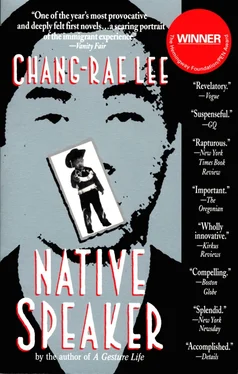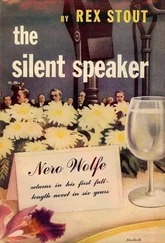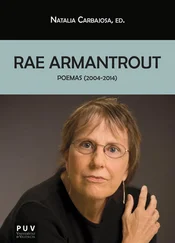Lelia switches the wall heater to high and we take off our clothes and slip into bed. We try to take a bath but the water doesn’t clear of its rust; the shower is the same. The pay movie is finally ending. We first muted the sound, but there’s no remote so we let it go on, silent. Now, the flickering lights of the finale wash over us, spectacular explosions, muzzle flashes, the steady glow of reactor fires. Only a movie can color your lovemaking like a movie’s.
We know the hero won’t die. He can’t. There’s too much blood on his face, he’s too pummeled and wrecked to perish, his bedragglement is the sign to us that he is safe, actually immortal. The gunmen who sport $200 haircuts and Italian suits take bullets to the head. Lelia winces each time they fall. I imagine Jack in Cyprus, both knees broken, blood gluing his teeth, taking aim and shooting his young captor in the eye while lying on the ground. In our fictions, a lucky shot saves your life.
Lelia sits up to go to the bathroom, waits for a second, then runs through the dark. I hear her pee and then flush. The creak of the mirror. Then she’s still for a moment.
She calls out.
“Henry,” she says, sounding worried. “I think I’m getting old. Fast.”
“Not so fast,” I say.
“That’s not the right answer,” she calls, singing the last word.
She creeps out, runs back. After certain movies we rent, a sniper waits somewhere in the room, a strangler or rapist lurks. She used to check on Mitt during the credits, making sure he hadn’t been stolen. She still insists on renting slasher films, demon movies. She wants to get stuck in her imagination. I saw her carry a marble paperweight through our apartment after we watched Jaws .
But I think the rest of her is becoming dauntless, even with our years and troubles. Mitt. Her trip of escape, the brief love affair. My treacheries. None of these are written on her face, none of these can be read on her body. History, it turns out, is not a human expression. Age is, time is. And she’s right; the oldness is now just appearing about her lip, her temples, in the tide of her voice, which is steadily deepening, broadening. In fact she is beginning to sound a little like her old man, but without all the heady blow and bellow. These days, I notice, she likes to hum her songs, prefers this, when once she would only sing pristine notes, ring them out like clarions around the apartment.
“Try to find the weather for tomorrow,” she says to me, nodding toward the television. “If it’s nice, maybe we should stay another day.”
I get up and flip around until I find the local news station. Another cabbie is dead, shot in the back of the head, this time a Cuban driver in the Bronx. They show the blood-soaked seat, the shattered windshield, a dashboard scent infuser tagged with a religious inscription in Spanish.
“Christ,” Lelia whispers.
The man is the fifth or sixth driver murdered in the last two months. The cabbies are threatening a one-day strike of all New York. They want something done, more police protection, swift justice, but no one has any good idea of how to get it done. The news shows Mayor De Roos venerably bowing his head at a press conference. The reporter speaks to several drivers at the company garages, and though all of them are concerned and scared there’s nobody who can speak for the drivers as a group, who even wants to, they’re too different from one another, they’re recently arrived Latvians and Jamaicans, Pakistanis, Hmong.
What they have in common are the trinkets from their homelands swaying from the rearview mirror, the strings of beads, shells, the brass letters, the blurry snapshots of their small children, the night-worn eyes. I wonder if the Cuban could even beg for his life so that the killer might understand. What could he do? Have mercy , should be the first lesson in this city, how to say the phrase instantly in forty signs and tongues.
The next story is about a small freighter that runs aground off Far Rockaway in the middle of the night. The boat carries around fifty Chinese men who have paid $20,000 each to smugglers to ship them to America. Men are leaping from the sides of the boat, clinging to ropes dangling down into the water. Rescue boats bob in the rough surf, plucking the treaders with looped gaffs. The drowned are lined up on the dock beneath canvas tarps. The ones who make it, dazed, soaked, unspeaking, are led off in a line into police vans.
The last big story is a fire. It is burning even now. A two-alarm blaze at the main offices of City Councilman John Kwang, and the building next door. The cause is suspicious. Witnesses say there was a small explosion around 9 P.M. There are no official reports as yet of injuries or fatalities. It happened too late, authorities think, for anyone to be inside. The witnesses saw two men in ski masks running from the alley. Then the windows blew out. The pictures show the street in chaos, the burning frame of a car parked out front. The back part of the building is ferociously spewing smoke and a girl on the street is crying and pointing at something and covering her mouth. I know Kwang was in Washington, D.C., this afternoon, and we now see him stepping from the shuttle gate at La Guardia, rushing out to his car, Jenkins rushing with him, and then Sherrie Chin-Watt. None of them will comment.
We stop watching and lie back and wait for the weather forecast but we don’t hear it. There is a perfect calm in the bed, and then Lelia gets up and shuts off the television. When she comes back she is looking up at the plastered ceiling, her arms folded, pinning the sheet tight against her chest. I turn off my light. Then she clicks off her side. It’s pitch dark. We’ve made love just a little before but now I notice how conscious I am of touching her. She is perfectly still. I can’t even hear her breathing.
“God,” she says, the awe quieting her voice. “Good god. You could have been there.”
“Maybe,” I say.
She rolls into me, nearly on top of me. She whispers close, “He’s safe.”
“Yes.”
“Who did this?” she asks.
“I don’t know,” I say, the possibilities firing in my head, though most of them involve Dennis, and now even Jack, the two of them watching the blaze from the periphery.
“Do we need to go back now?”
“No,” I tell her. “We’ll go in the morning.”
“I feel ill,” she says, getting up. She stumbles to the bathroom. I follow her and hold her shoulders as she gets sick into the toilet.
“I’m sorry, Henry,” she says, turning on the tap. “I’m all right now.”
I don’t say any more. I can’t. I walk her back through the dark room to the bed. We lie down and in a few minutes she’s so quiet that for a second I think she’s dead. I put my fingers near her mouth to check. She’s just breathing faintly, not yet asleep.
Now I’m scarcely breathing myself. This is wont with my training in the face of sudden turns or shifts in events. But I’m square in the fear. If you’re skilled you don’t try to steel yourself, you actually do the opposite, you let yourself go, completely, Hoagland told me once, like you are sitting on the toilet, you loosen a certain muscle. It’s a classic NKVD trick, and if you’re careful and practiced it works without disaster. Old Soviets know. You are serene as Siberia.
Once, I do it perfectly. Maybe for years. A child of mine is somehow dead. He is no longer inhabiting our life. I watch my wife go out every morning to wander about the grounds of my father’s house, poking in the bushes and the trees for hours at a time, as if to follow his last tracks. One morning she returns with objects in her hands, pretty rocks and twigs and big oak leaves, and she sits down silently at the small table in our garage apartment to construct a little house. She works slowly. I watch her from the corner, where I often read. Eventually, the rocks show a path, she raises walls with the twigs, and the canopy of leaves she blows gently with her breath, to make sure its utility. She peers inside, expressionless. She blows harder and then leaves it. Then she crawls back into bed.
Читать дальше












